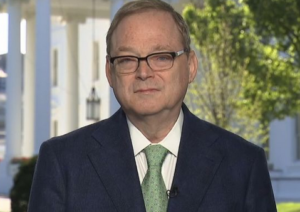Judge Paula Xinis has criticized the Trump administration for failing to act on a Supreme Court ruling regarding the return of Kilmar Ábrego García, a Salvadoran national deported in error. The administration maintains ties between García and gang activity, while his legal team insists he has faced no charges. A contempt ruling could escalate tensions between the judiciary and the executive branch.
Judge Presses Trump Administration on Deportation Case of Kilmar Ábrego García

Judge Presses Trump Administration on Deportation Case of Kilmar Ábrego García
A federal judge has given the Trump administration a timeline to address the wrongful deportation of Kilmar Ábrego García to El Salvador, amid accusations of governmental inaction.
A federal judge has issued a stern warning to the Trump administration regarding the deportation case involving Kilmar Ábrego García, who was mistakenly sent back to a controversial prison in El Salvador last month. Judge Paula Xinis expressed frustration over what she termed "inaction" from government officials and is demanding evidence of efforts to facilitate his return within two weeks. She stated, "There will be no tolerance for gamesmanship," highlighting the urgency of the situation.
The Supreme Court has previously instructed the administration to ensure García's release, despite President Nayib Bukele of El Salvador indicating that the country's legal framework limits his ability to return the individual. García, a Salvadoran national, has been characterized by the administration as having connections to the notorious MS-13 gang, an assertion his defense team vehemently disputes, claiming he has never faced criminal charges.
During a recent court hearing in Greenbelt, Maryland, Judge Xinis ordered the attendance of senior officials from the Department of Homeland Security (DHS) and the Immigration and Customs Enforcement (ICE) to provide sworn testimony. She demanded that the administration prioritize the case, stating: "Cancel vacations, cancel other appointments. I expect all hands on deck."
On Tuesday, defense attorney Drew Ensign suggested that the government would aid in García's return upon his self-presentation at a U.S. port of entry. Contradictorily, a court filing from Joseph Mazzarra, acting general counsel for DHS, claimed that doing so could result in him being detained for removal to a third country.
García's wife, Jennifer Vasquez Sura, has made an emotional plea for her husband's return, urging both the Trump and Bukele administrations to cease playing "political games" with his life. A 2019 court order had previously granted García protection against deportation due to fears of persecution from gangs in El Salvador.
The Supreme Court's ruling last week recognized the government's acknowledgment of García's legal protection, which rendered his deportation illegal. In a twist, the Trump administration refuted any claims of a mistaken deportation, attributing the incident to an administrative error made by a former attorney, for which the DOJ has since suspended responsibility.
Judicial authority and executive power are at a crossroads, with potential contempt of court rulings looming over the administration's handling of this case. As Maryland Senator Chris Van Hollen prepares to travel to El Salvador to check on García's wellbeing, tensions between the judiciary's oversight responsibilities and the executive's immigration policies remain high.






















